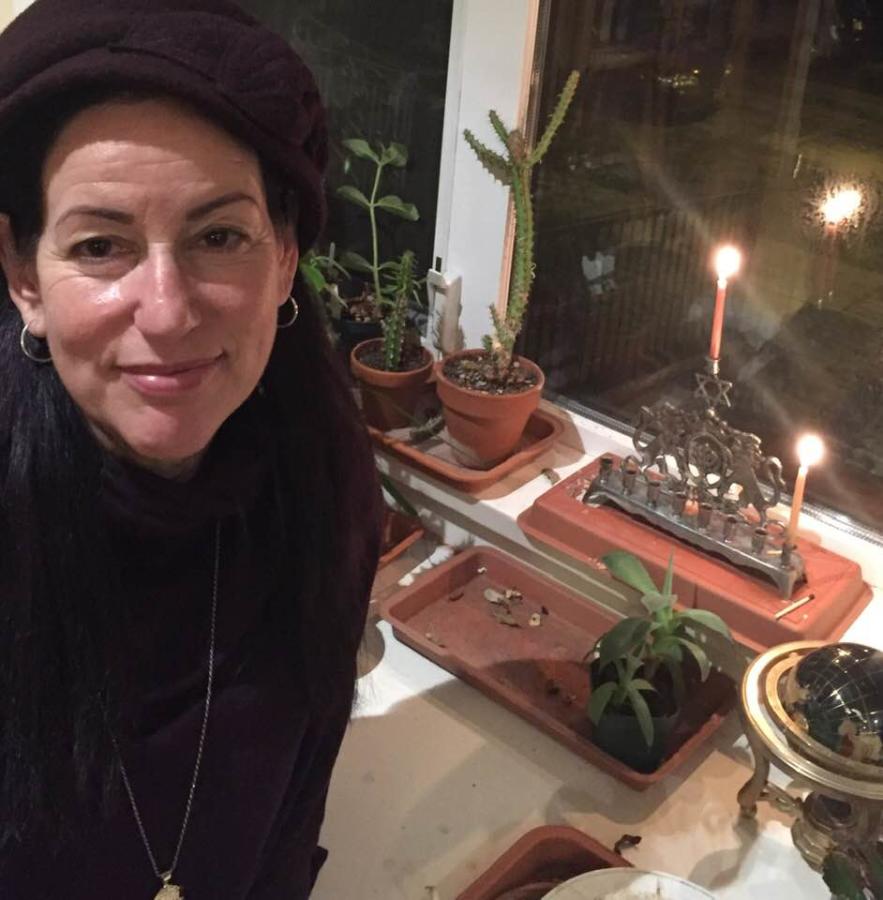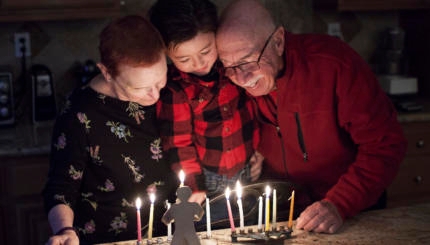The history of Hanukah may be fixed for all time. But the meaning we find in Hanukah? That changes, year by year. Place by place. Person by person.
Remember the year that Hanukah and Thanksgiving coincided? That year, we celebrated gratitude. The year terrorist attacks were in the news? We worried about Maccabean violence and wondered what we were teaching our children.
Do you live in a small place, a town with few Jews? Where Christmas is a big deal? Maybe Hanukah is your way to celebrate Jewish identity. A winter feast with lights, gifts, and a Jewish theme. And a bit of culture to share proudly with your neighbors.
Maybe, one year, partying at Hanukah was hard for you personally. Perhaps you were sad, but quietly found a bit of hope in the holiday. As you watched the candlelight grow each night, you knew that, over time, you would gradually heal.
Religion is part of life. Life changes; new meanings emerge; our religious understandings deepen. Right now, my own life is changing fast. Just last week, I became a citizen of Canada. I’m acutely aware of the place I live. In this new context, familiar things seem strange. Even children, if they grew up here, know many things I don’t.
In fact, just yesterday, a child taught me a deeper meaning hidden in Hanukah practice.
This child grew up on the west coast of Canada, where I now live. Here, environmental sustainability isn’t just a slogan. Instead, our daily lives depend on it. Forestry, fishing, and mining are important industries. So is recreational tourism. Businesses cater to skiers, hikers, kayakers, bird watchers.
Here, we learn to love the outdoors. We experience spirituality in nature. We learn from our local Indigenous teachers to support the environment because it supports us. We reduce, recycle, re-use, compost, and avoid driving because – well, it’s obvious.
So, this child of western Canada saw in Hanukah a teaching about sustainability.
He was part of a group learning with me about Hanukah. Together, we lit the candles. I explained that we light one candle the first night, two the second, and so on, through the eighth night. Then, I told the Hanukah story. A child-friendly version, with lots of repetition, a fun phrase to sing, and a question at the end. “When the people realized they only had enough oil for one night but needed the menorah to burn for eight days, what do you think they did?”
To this child, the answer was obvious. “They lit one oil candle the first night, then two the second…”
Of course! Religious faith, for this child, is all about sustainability. If you’re spiritual, then you love nature. When you’re ethical, you show your love in action. You don’t use more fuel than you need. It would be wasteful to burn up all your resources just to have a big party. That would harm your community and insult your Creator. Hanukah reinforces these values. Obviously!
Until yesterday, I saw the daily increase in candles as a symbol. Increasing holiness, beauty, and joy. That’s how our historical instruction manual, the Talmud, explains it. But now I see another meaning, too. It’s a way of learning by doing, a ritual practice that shows us how to live well on the land.
And that is something that people need to learn, in this time, and this place.



